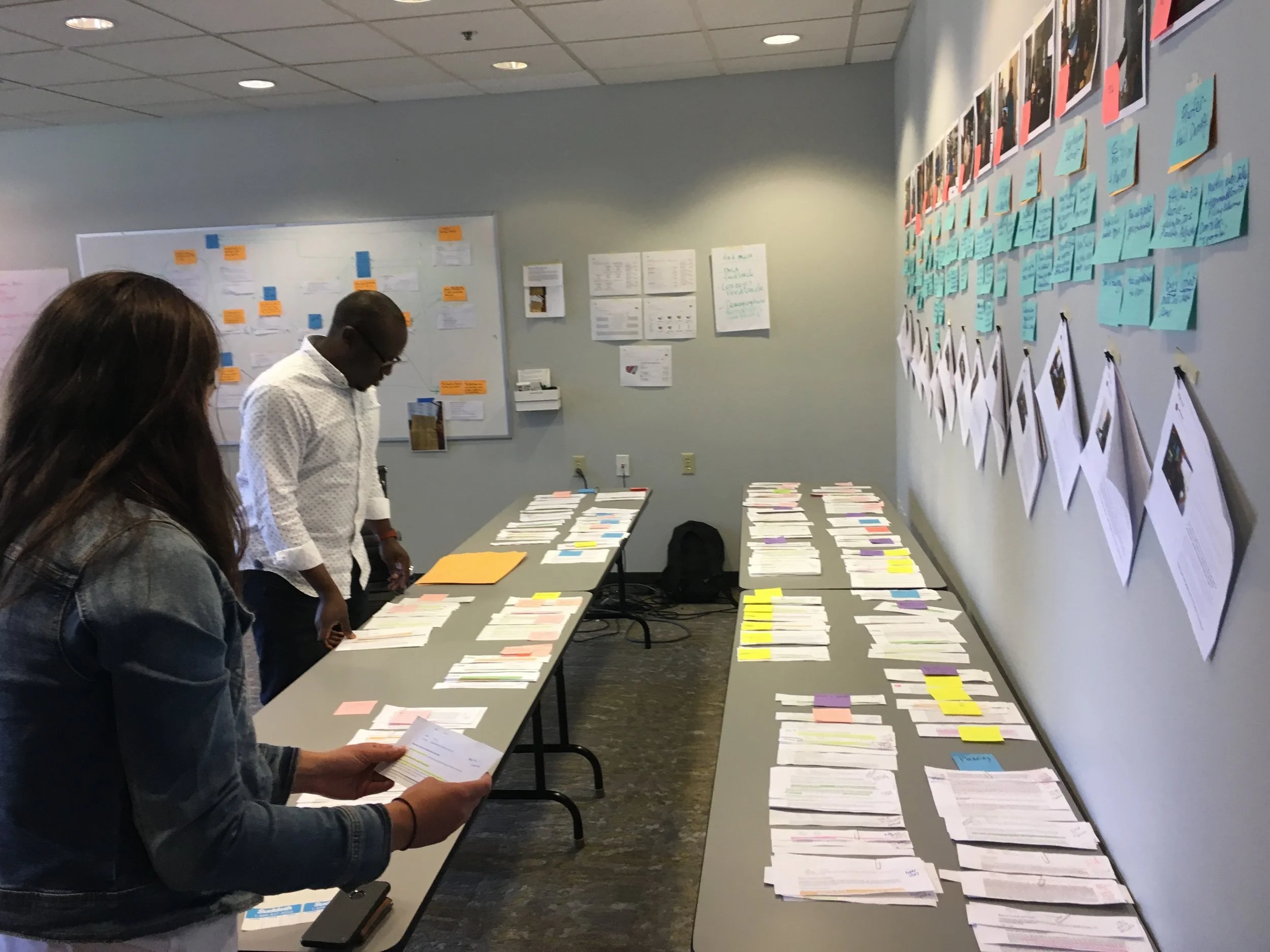





I worked as a consultant for a Fortune 100 company to conduct research, analysis and synthesis to find critical themes and provide recommendations on client behavior to increase their revenue for product category in light of new competition.
Work included:
• in-person interviews with customers across several U.S. regions,
• contextual inquiry and ethnography research methodologies,
• generative and evaluative research methods
• Journey mapping
• analysis and synthesis,
• insights, mapping, clustering,
• critical themes
• new frames
• ecosystem and findings maps
• customer engagement models
• adoption roadmap

Design-enabled recommoning has led to seven (7) new principles for building a different kind of cooperative platform. These principles were formed from a combination of the recommoning platforms as well as the recommoning exercises (illustrated by Theora Kvitka).

The recommoning principles span issues such as ensuring that the different perspectives of platform users are considered in building platforms, shifting roles when using platforms, engaging external participants to cooperate as allies, including non-humans (such as data, climate e.tc.) as participative agents in negotiations, and ensuring the use of platforms are transparent and visible. (illustration by Theora Kvitka).

My research into eDigs considered ways data access and information sharing shifts the balance of power within a rental climate in a mid-sized American city. However, as we see in subsequent sections, such information is never stand-alone since it is part and parcel of a much broader context of value transfer between individuals in social networks. Over the course of the study, I was the user experience design researcher and qualitative researcher on the project team. That team also included frontend and backend developers as well as a machine-learning researcher. For more, pls visit edigs.org

Hack Oregon is a platform that engages individual contributors to demystify open data by helping to find solutions to some of the social dilemmas experienced by the city of Portland Oregon. One of the themes Hack Oregon is addressing relates to contextualizing housing-related data. I volunteered at Hack Oregon as a User Experience designer and researcher to create better ways to visualize housing-related data. I used Figma to build wireframes that integrated housing data into the Hack Oregon platform. http://www.hackoregon.org/civic-projects/